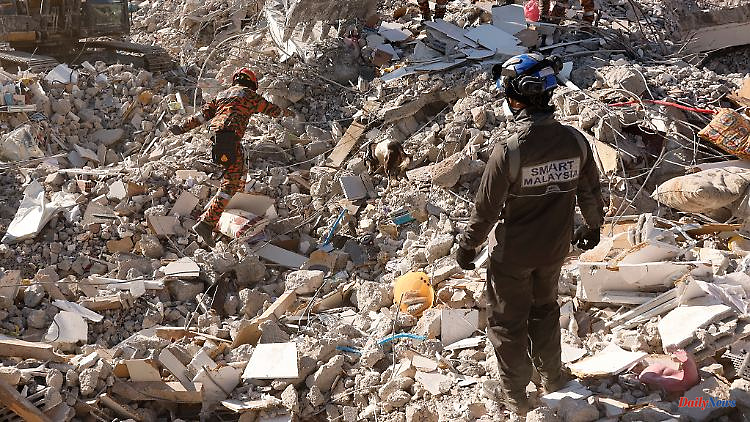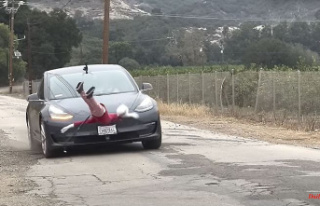After the last major earthquake in Turkey, windy property developers got off lightly: 1,800 of 2,000 investigations were dropped. Such mistakes should not be repeated after the recent catastrophe. Investigators track down builders and arrest them.
A luxury residential complex that is collapsing like a house of cards: after the devastating earthquake in Turkey, the Rönesans residence in Antakya has become a symbol of deadly botched construction. Building contractor Mehmet Yasar Coskun was arrested while trying to escape on Friday, as were two of his colleagues. The anger of the population is directed against the construction industry, the Ministry of Justice is investigating against 134 suspects.
"I don't know why the building collapsed," contractor Coskun protested his innocence. The mayor, who had granted the building permit for the residential complex, also denied responsibility. "A private company did the checks," Seyfettin Yeral told news portal T24. "We have no employees for such work."
Ten years ago, Coskun built the Rönesans complex with its 250 comfortable apartments including a swimming pool in the southern Turkish city. The tremors on February 6th turned the residential tower into a pile of rubble within minutes, which became a grave for many residents.
More than 35,000 deaths have been counted in Turkey and neighboring Syria so far. Experts say that many people died simply because the regulations for earthquake-proof construction were disregarded. In the online networks, many Turks are calling for contractors to be held accountable. The authorities are also concentrating on finding the guilty, and 114 arrest warrants have already been issued for violating building regulations.
The collapse of the Rönesans plant is by no means an isolated case. In recent years, numerous high-rise buildings have been erected in the region, where a severe earthquake has long been expected. Many of them appear to be non-compliant.
The hotel "Isias" in the provincial capital Adiyaman, for example, was officially closed due to "irregularities" during construction. As witnesses reported to the television station ntv, the seals on the doors were simply broken and the hotel reopened. When the ground shook, a youth volleyball team from North Cyprus stayed at the "Isias": All children died, only four adult companions survived. The walls of the hotel were "torn like paper," according to eyewitnesses. "I want those responsible to be brought to justice, they are murderers," a victim's relative told the broadcaster.
Despite all the warnings from renowned engineers and architects, windy contractors and property developers in Turkey have not had much to fear in the past. After the severe earthquake in 1999 in the northwest of the country, six months passed before the first suspect was arrested.
The authorities finally initiated 2,100 investigations against the developers of collapsed buildings. But after a general amnesty in December 2000, 1,800 of them were discontinued. Courts found guilt in only 110 cases. Most of the defendants benefited from a statute of limitations that came into effect in 2007.
But now the government of President Recep Tayyip Erdogan, which wants to be re-elected on May 14, seems to be taking tougher action: at least twelve suspects have already been arrested.












